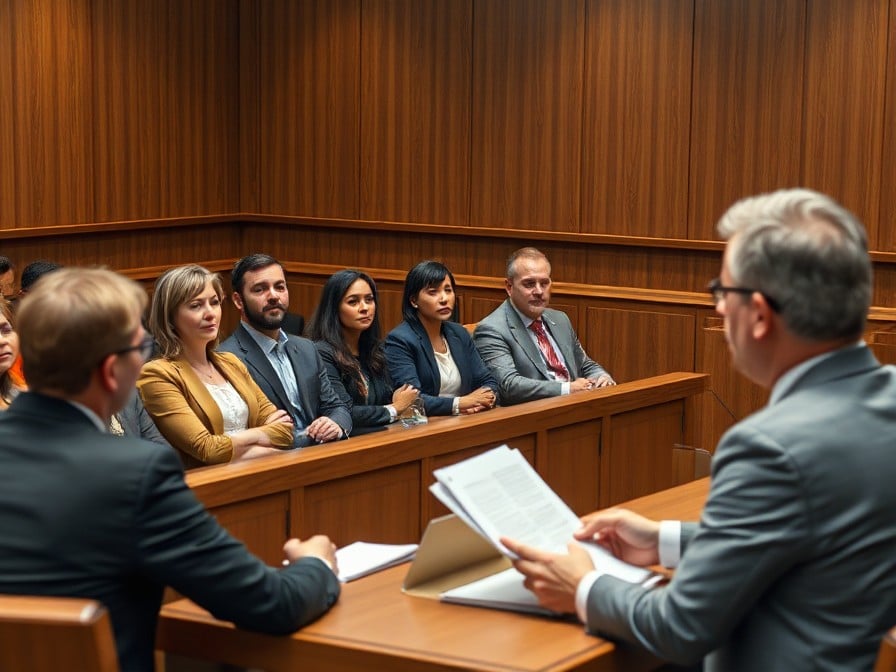In an ideal courtroom, decisions are rendered based solely on facts and evidence. However, real-world trials often reveal a different narrative—one where emotion, bias, and human psychology significantly influence outcomes. This divergence highlights the crucial role of jury consultants in navigating the intricate interplay between fact and emotion.
The Emotional Underpinnings of Jury Decisions
Research consistently demonstrates that jurors’ decisions are not purely fact-based. Psychologist Jonathan Haidt likens moral judgments to aesthetic ones, suggesting that people often make instant, emotion-driven decisions and subsequently rationalize them. This phenomenon is evident in various courtroom scenarios. See The Paradox of Persuasion: Why Logic Often Falls Flat and What Actually Works.
For instance, a study on Israeli parole hearings revealed that judges were more likely to deny parole as they became fatigued, with approval rates dropping from 65% to nearly zero before rebounding after breaks. Such findings highlight how factors unrelated to the case facts, such as mental fatigue, can influence judicial decisions.
Moreover, a study published in Psychological Science found that defendants with facial features perceived as “untrustworthy” were more likely to receive death sentences, regardless of the case’s specifics. This bias, rooted in snap judgments based on appearance, further highlights the emotional undercurrents that influence verdicts.
The Wells Effect: When Statistics Fall Short
The “Wells Effect,” named after psychologist Gary L. Wells, describes jurors’ tendency to undervalue statistical evidence, even when it strongly indicates guilt. In experiments, jurors were less likely to convict based solely on statistical probabilities, instead favoring anecdotal or emotionally resonant evidence. This preference underscores the challenge of relying exclusively on facts in the courtroom.
Jury Consultants: Bridging the Gap Between Fact and Emotion
Given the emotional and psychological factors at play, jury consultants have become vital in trial preparation. These professionals employ various techniques to understand and mitigate biases, ensuring a fairer trial process.
Scientific Jury Selection
Scientific jury selection involves using social science methods to identify potential jurors’ biases and attitudes. By analyzing demographic data, conducting surveys, and organizing mock trials, jury consultants can predict how jurors may respond to specific arguments or evidence. This approach enables attorneys to select jurors who are more likely to evaluate cases objectively. See Data-Driven Jury Selection: How to Use It?
Voir Dire and Bias Detection
During voir dire, the jury selection process, jury consultants assist attorneys in crafting questions that reveal underlying biases. By identifying and addressing these biases early, attorneys can challenge unsuitable jurors, promoting a more impartial jury. See 15 Key Insights for Effective Jury Selection.
Narrative Development
Recognizing that stories and emotions influence jurors, jury consultants help attorneys develop compelling narratives that resonate with jurors’ values and experiences. This strategy ensures that factual evidence is presented within a context that jurors find relatable and persuasive. See Three Top Trial Lawyers Tell Us Why Storytelling Is So Important and The Key Elements of a Good Narrative – at Trial or Anywhere Else and How Does Narrative Strategy Improve Trial Outcomes?
The Impact of Jury Consultants on Trial Outcomes
The influence of jury consultants is evident in high-profile cases. For example, during the O.J. Simpson trial, consultant Jo-Ellan Dimitrius utilized demographic analysis and behavioral observations to select jurors favorable to the defense. Similarly, Amy Singer, a pioneer in litigation psychology, employed neuro-linguistic programming and social media analysis to gauge public sentiment during the Casey Anthony trial. At Persuadius, we have countless similar examples in significant civil matters as well.
These cases demonstrate how jury consultants can influence trial strategies, ensuring that both emotional and psychological factors are considered alongside factual evidence.
Conclusion: Balancing Emotion and Evidence
While the justice system aspires to objectivity, human emotions and biases inevitably influence courtroom decisions. Jury consultants play a crucial role in recognizing and addressing these factors, striving to ensure that verdicts are grounded in both fact and fairness. Their expertise bridges the gap between the ideal of impartial justice and the reality of human judgment, making them indispensable allies in the pursuit of justice.
For more insights into the role of Persuadius jury consultants and litigation strategies, download our Persuadius/A2L Jury Consulting guidebook.







Leave a Comment